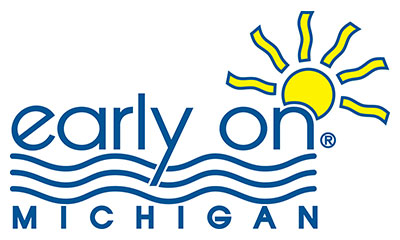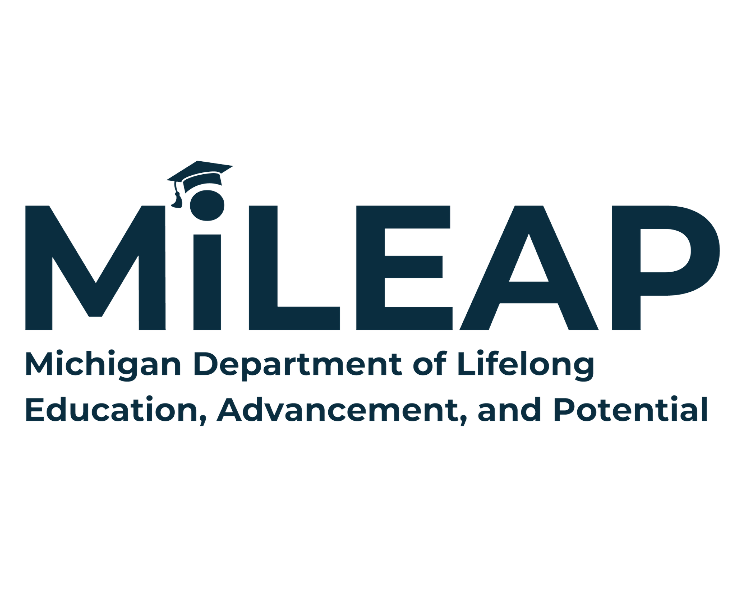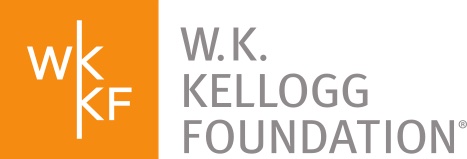Registration is currently CLOSED
Detroit Wayne Integrated Health Network and MI-AIMH –
Early Childhood Learning Series
When It’s Not a Perfect Pregnancy: Attending to maternal mental health
while facilitating connection
When the unexpected happens, the emotional health of an individual can be shaken. When the unexpected happens, and you are pregnant, the emotional health of the mother, father and infant can be altered. What if there was a tool to aid the parents in healing through their narrative, their relationship story, as well as foster understanding through the prenatal connection of the mother-child dyad to prepare the child for the world they will join, life they may experience, and birth process?
In 2020, we have all experienced the unexpected. It has touched all of us, as clinicians and human beings. Over time the unfolding of the impact on pregnant and delivering mothers, on fathers not able to stay with their newly born children, and on infants being born into a world plagued with fear and uncertainty will be seen and felt. During our time together, we will explore our experiences on how a pandemic in an interconnected world is shaping our relatedness with others, ourselves and babies born. And, could this be a time, more than ever before, to learn how to facilitate attachment and communication prior to children being born into this world?
Through the case presentations of remarkable families the impact Prenatal Bonding (BA) has on fostering attachment, as well as early childhood social emotional development in spite of grief, trauma, expected post-partum depression and medical complications will be revealed. Through reflective practice exercises, participants will explore their personal and professional work, as well as identify potential blind spots in their work with mothers who are pregnant. The most recent data presented in 2018 will also be presented on the effectiveness of Prenatal Bonding (BA), including decrease in Caesarian sections, longer breast-feeding, and reduction in maternal post-partum depression.
We will conclude with a brief discussion of the potential financial and societal impact on our communities if such a tool could be implemented into our work with families.
Did you know that Michael Trout brought the training method, Prenatal Bonding, to the United States? Be sure to check out this link which contains the history of Prenatal Bonding: History of Prenatal Bonding
Dates: Monday, May 18th and Wednesday, May 20th
Time: 1:00 pm – 4:00 PM
Presenter: Rebecca S. Molitor, LCPC & Prenatal Bonding (BA) Facilitator, Trainer-in-Training
Access: This training will be offered virtually using Zoom. After you register, you will receive an email closer to the training with the Zoom link and info.
IMPORTANT – in order to receive Continuing Education you will need to have a Zoom account (which is free) logged in to view the training. We are able to export a report from Zoom which will track your attendance. When you are signed in, your name appears along with the amount of time you were on the Zoom call. Only those names that appear on the report will receive certificates with continuing education credits/clock hours. If you have any questions, please email tmartinez@mi-aimh.org
Learning Objectives:
- Recognize Prenatal Bonding (BA)’s use of mindful relaxation to facilitate connection with inner world and unborn baby.
- Identify at least two potential outcomes from Prenatal Bonding (BA) facilitation for the parent-child relationship, maternal mental health and child social emotional development.
- Explain importance of separation phase in Prenatal Bonding (BA) facilitation in relation to individuation for the infant and acceptance by mother.
- Identify one factor influencing why the separation of mothers and newborns immediately after birth during the new coronavirus pandemic occurred.
- Identify two potential outcomes from the separation of mothers and newborns immediately after birth during the new coronavirus pandemic which may be observed later in parental experiences, child psychological development, family relations and/or parent-child dyadic relationship.
- Identify one outcome of Prenatal Bonding (BA) facilitation noted in the research presented at the International Society for Pre-and Perinatal Psychology and Medicine Conference in Cologne, Germany, 2018.
Continuing Education Information – 5.5 training hours:
IMPORTANT – in order to receive Continuing Education you will need to have a Zoom account (which is free) logged in to view the training. We are able to export a report from Zoom which will track your attendance. When you are signed in, your name appears along with the amount of time you were on the Zoom call. Only those names that appear on the report will receive certificates with continuing education credits/clock hours. If you have any questions, please email tmartinez@mi-aimh.org
Social Work – Approved for 5.5 Michigan SW CEU’s
IMH Endorsement® – Will count towards the requirements for the MI-AIMH Endorsement®
NEW! Licensed Professional Counselors – NBCC Hours – Michigan Association for Infant Mental Health (MI-AIMH) has been approved by NBCC as an Approved Continuing Education Provider, ACEP No.6867. Programs that do not qualify for NBCC credit are clearly identified. MI-AIMH is solely responsible for all aspects of the programs.
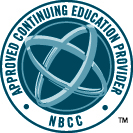
Key MI-AIMH Competencies addressed include:
Registration:
This training is sponsored generously by the Detroit Wayne Integrated Health Network (DWIHN). Therefore, training attendees need to be employed by a Detroit Wayne Infant Mental Health program and a coupon code is required to register. If you work outside of Detroit-Wayne County and are interested in the training topic, please contact Tiffanie Martinez tmartinez@mi-aimh.org, MI-AIMH Communications and Training Specialist, about the possibility of bringing this trainer to your area.
Registration deadlines: Registration will close on May 13th.
For registration questions, contact Tiffanie Martinez at: tmartinez@mi-aimh.org or 734-785-7705, Ext. 7617
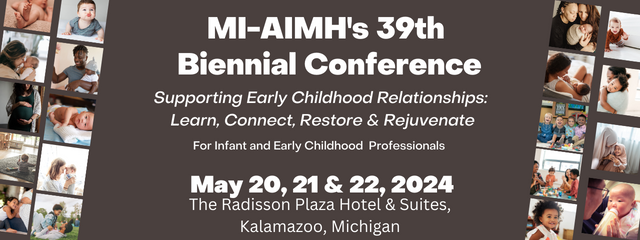
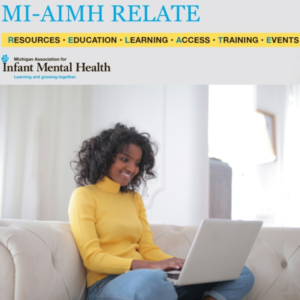

 13101 Allen Road
Southgate, Michigan 48195
tel: 734.785.7705 x7194
fax: 734.287.1680
13101 Allen Road
Southgate, Michigan 48195
tel: 734.785.7705 x7194
fax: 734.287.1680


